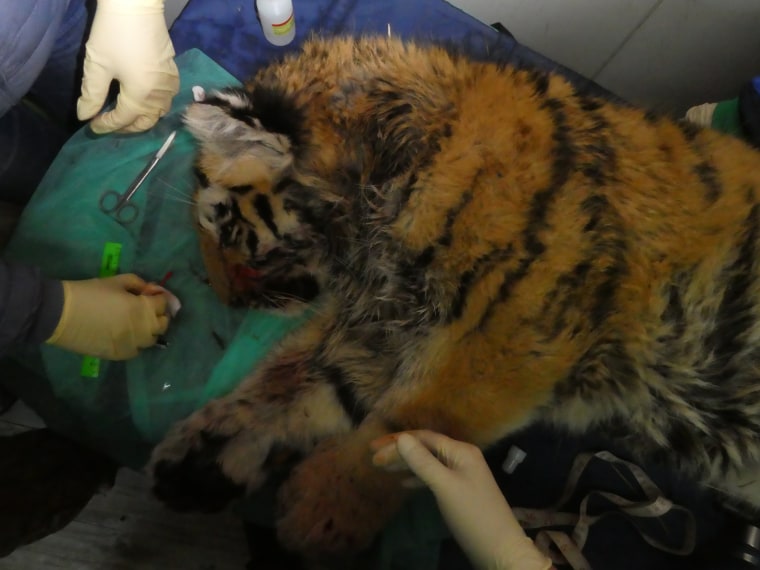MOSCOW — When a rare wild tiger cub was found in a remote part of Russia with serious wounds to his face and eye, wildlife officials wanted to give him a name that reflected his determination and indomitable spirit.
Their preferred choice? To call the predator "Trump."
The Russian branch of the World Wide Fund for Nature (WWF) told NBC News that the name was intended to be tongue-in-cheek, rather than lionizing America's new president.

Officials have yet to decide between naming the wounded animal after the U.S. president or calling him "Nelson" after the 19th-Century British navy admiral who was blind in one eye.
"We're choosing between the name 'Trump' for the will to win, in honor of the U.S. president, and the second option, 'Nelson', after admiral Nelson," said Pavel Fomenko a WWF official in Russia's far eastern Primorsky region where the animal was found earlier this month.
Whatever they choose, the name likely won't matter. Tigers don't tend to come when they are called, and conservationists plan eventually to release the animal back into the wild.
Officials don't know how the tiger received its disfiguring facial wounds. They first suspected he was shot by a poacher but now believe he may have been attacked by a tigress from a rival litter.
Nevertheless, he is on the road to recovery. He has been in intensive care for two weeks at the local Amur Tiger Center and is on track to recover sight in both eyes, according to the WWF.
His skull bones are also healing without disfigurement, giving hope that he will regain the ability to breathe normally and to grow adult teeth after his current set fall out.
Nevertheless, the tiger will have to spend up to 18 months at the facility until he is deemed fit to go back into the wilderness.
There are only about 500 wild Siberian tigers — mostly in Russia, China and North Korea — although those numbers are up from a mid-20th Century low point of around 40. The recovery was partly due to conservation effort by by Russia's President Vladimir Putin, a famous lover of apex predators.